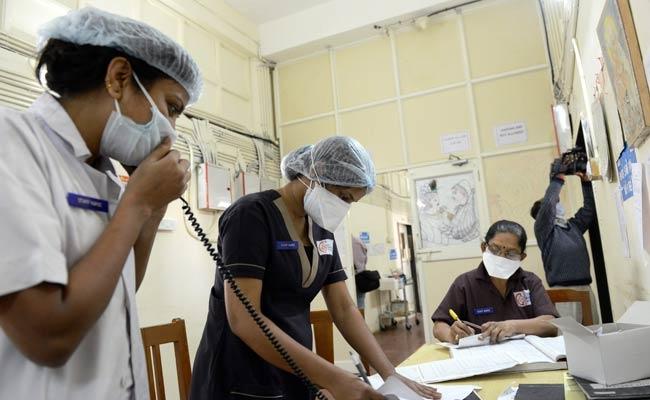Parliamentary Committee Questions Modicare Viability

The National Health Protection Scheme (NHPS) — announced by the BJP-led NDA government in the Budget 2018-19 — is not really a “step forward” from the existing insurance schemes, according a report by the Parliamentary Standing Committee on Health and Family Welfare.
Stating that the NHPS was simply a “modification” of the earlier health insurance scheme, the Rashtriya Swasthya Bima Yojana (RSBY), the Committee has warned the government not to repeat the “failures” of the RSBY.
Finance Minister Arun Jaitley had called the NHPS the “world’s largest government funded healthcare programme” (a description that is inaccurate).
The much-vaunted scheme proposes to provide coverage up to Rs 5 lakh per family per year to 10 crore poor and vulnerable families (approximately 50 crore beneficiaries) for secondary and tertiary care hospitalization.
The Committee report points out that not only did RSBY have low enrolment and lead to an increase in the out-of-pocket (OOP) expenditure by patients, but that the central government released less than half of the original budgeted allocation for the health insurance scheme in 2017-18.
The revenue allocation for the RSBY in the 2017-18 financial year was reduced from Rs 975 crore to Rs 565.52 crore while only Rs 450 crore were actually released, says the report of the Parliamentary Standing Committee.
The reduction in the revenue allocation was attributed mainly to the fact that the health ministry had moved a proposal for another scheme with enhanced cover of Rs 1 lakh per family, but the proposal was still pending with the Cabinet. The Rashtriya Swasthya Bima Yojana provided limited coverage of only Rs. 30,000.
“Therefore, such States that were waiting for the new scheme to be launched did not submit any proposal and meanwhile stopped implementation of RSBY,” says the report, which was tabled in the Lok Sabha on 8 March.
And “funds as central share of premium under RSBY of approximately Rs. 450 crore were only released for such States that submitted their proposal during the year 2017-2018.”
The report also reveals that an allocation of Rs 25 crore, made for capital purposes in 2017-18 for setting up of office premises for the proposed scheme with enhanced cover of Rs 1 lakh, could not be utilized as the Cabinet approval for the scheme remained pending. The funds were, therefore, surrendered with the Budget division.
Meanwhile, only Rs 2,000 crore have been allocated for the proposed NHPS, which will replace the RSBY while expanding the coverage, in 2018-19.
The Committee report also echoes the critique made elsewhere that the RSBY has led to an increase in the OOP expenses, defeating the purpose of the health coverage.
The idea behind state-funded insurance schemes is to reduce out-of-pocket (OOP) expenditure of patients, as health services become increasingly privatised and unaffordable under the neoliberal economic regime. This is why the idea of Universal Health Coverage was propagated by the international financial institutions such as the World Bank, which are directly responsible for the dismantling of the public health provisioning systems worldwide.
But most studies related to the RSBY show that it actually entailed an increase in OOP expenditure.
“A recent comprehensive review on various studies related to RSBY (Prinja, 2017) revealed that in majority of studies (8 out of 14) there was increase in Out of Pocket Expenditure related to RSBY, while only 2 of 14 studies showed reduction in expenditure,” the report says.
Further, “NSS data on RSBY shows that enrolment is quite low, only 57% of eligible are enrolled and less than 12% of the eligible persons got their hospitalisation covered through RSBY.”
The Committee report also notes that “over half the target beneficiaries proposed to be covered under the NHPS already stand covered today by existing government supported schemes.” It says that many states have in fact opted out of RSBY in favour of state-run schemes.
Referring to the severely limiting fact that the NHPS would cover only in-patient care/hospitalisation expenses, the report says, “What would indeed have been a step forward is if it covered out-patient treatment as well, but that is lacking.”
The Parliamentary Standing Committee recommends that the government should form a committee to analyse the failures of RSBY and “ensure that inadequacies plaguing the operation and implementation of RSBY are not repeated.”
The Committee also recommends that the NHPS “must have first claim on the proceeds collected from Health and Education Cess” and constraints on funds “should not be allowed to come in the way of implementation of NHPS.”
Get the latest reports & analysis with people's perspective on Protests, movements & deep analytical videos, discussions of the current affairs in your Telegram app. Subscribe to NewsClick's Telegram channel & get Real-Time updates on stories, as they get published on our website.
























